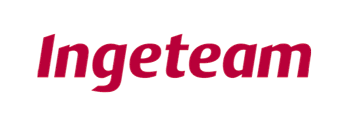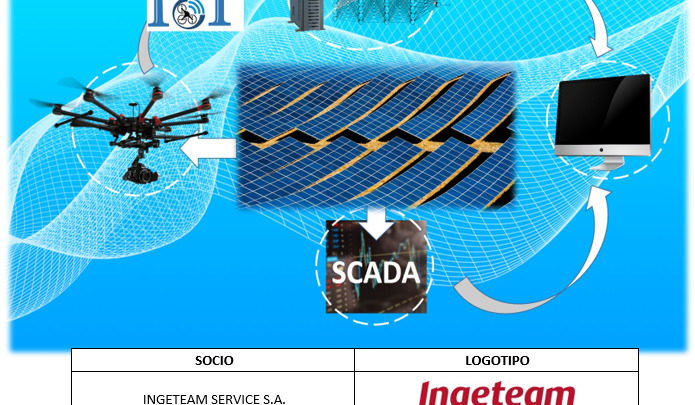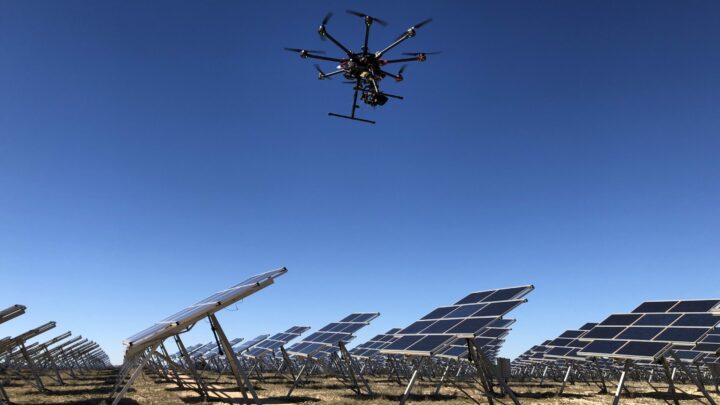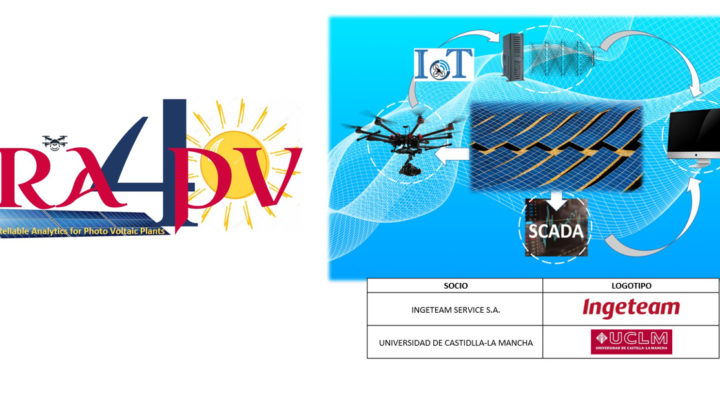"The objective of this R&D project, I+D+i Projects “Retos-Colaboración” of the Programa Estatal de Investigación, Desarrollo e Innovacion Orientada a los Retos de la Sociedad", within the framework of the State Plan for Scientific and Technical Research and Innovation 2017-2020" is the development of an intelligent tool based on monitoring systems embedded in UAVs for the optimization of the operation and maintenance of solar photovoltaic plants."
RA4PV
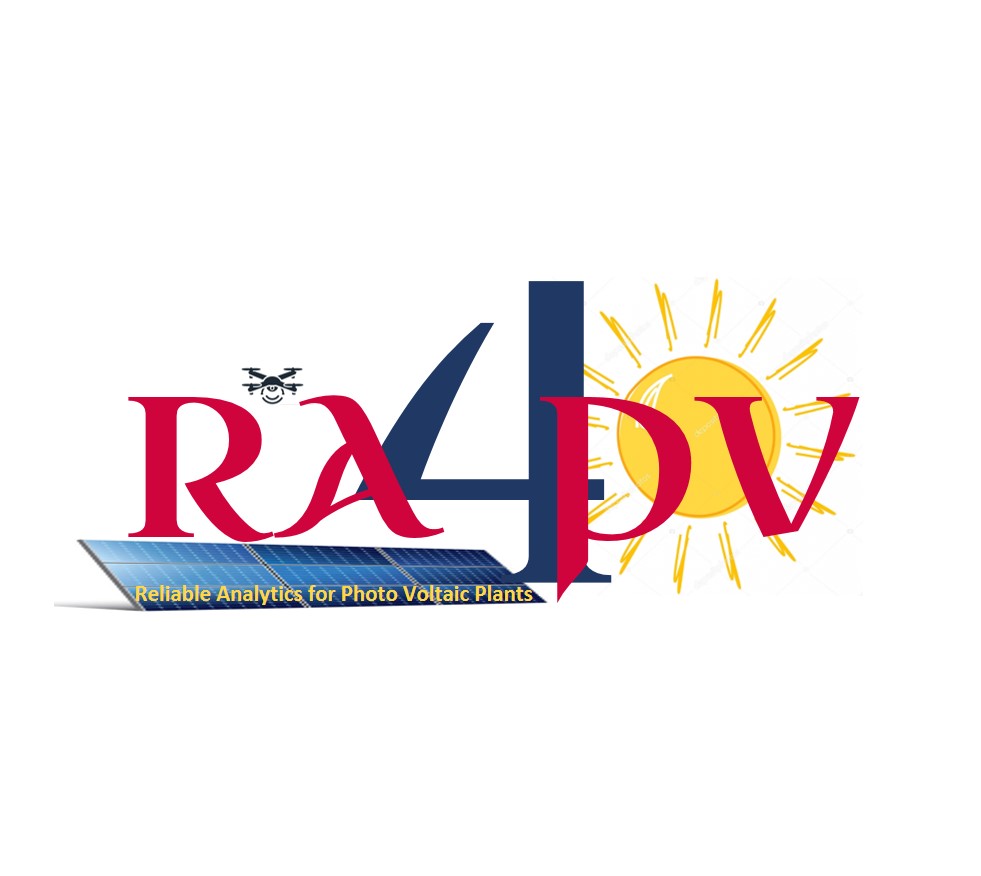
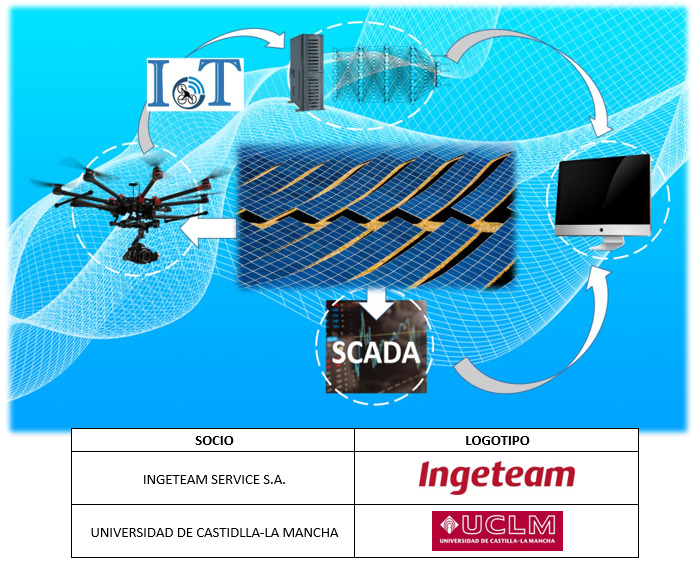
GRANT AGREEMENT ID: RTC2019-007364-3
GRANTED: € 887.010
FUNDED:
![]()
1st January 2021 30th September 2023
TITLE: [Proyecto RA4PV] Reliable Analytics for Photo Voltaic Plants: Herramientas de Análisis Inteligente para Plantas de Generación Fotovoltaica
Unmanned aerial vehiclest or drones are technological tools with diverse application fields whose growth is currently a reality. For the inspection of solar panels, these drones can transport high-precision and wide-range thermographic cameras, allowing a wider field of view. One of the main issues in the development of aerial inspection is the positioning of the aircraft. The drones generate the positioning due to various systems, mainly the GPS system. However, this system presents wide margins of error causing panel measurement errors. The determination of the inspected panel is a complex process at each moment. For this purpose, the RA4PV project proposes aircraft with positioning based on RTK systems that allow centimeter error margins.
The information obtained is based on thermographic image format, where the thermal variations presented by each inspected surface can be appreciated. The amount of data generated by this system is huge, due to the extension of the solar plants and the capacity of the system to capture video and thermograms. The post-processing of the data is an unfeasible question in time and cost, since it would be necessary to review each of the thermograms manually. The project proposes a data processing system that allows the processing from an online platform. The user only has to upload the data and extract the results automatically, being a challenge to the development of this project.
All these processes are essential from the operational point of view, but it is necessary to join the detection of defects developed by algorithms with the fundamental exogenous variables, such as power production, influence of weather, maintenance costs, stops, etc. In this context, it is intended to achieve new advances in intelligent algorithms, continuing to go beyond the current state of the art. In this way, a flexible and efficient tool will be developed for the maintenance strategy, not existing in the market.
In the report of the present project, a work plan is proposed with a duration of 36 months, to implement and achieve the technical and operational objectives described above. This work plan is divided in 8 work packages, each one with different objectives and duration.

The objective of the project RA4PV (Reliable Analytics for Photo Voltaic Plants):Intelligent analysis tools for photovoltaic generation plants is to develop a new monitoring system for inspecting photovoltaic plants, based on technical and scientific improvements added to the model proposed in the project: Intelligent tool for optimizing the operation and maintenance of photovoltaic plants based on new monitoring systems on board UAVs. It is essential to continue with the line developed in the previous project, reinforcing the advances achieved with new methods and equipment that allow the developed model to be reached at a pilot level. This new system for the support to the operation and maintenance (O&M) will be composed by
1. Unmanned aerial vehicle (UAV or drone) with the capacity to inspect large areas and transport different sensors or cameras.
2. New positioning systems to ensure the correct development of the drone trajectory, ensuring that errors in the measurement of the panels are avoided.
3. Algorithms to identify, quantify and classify defects or anomalies that cause a reduction in performance, such as hot spots or dirt.
4. Execution of the algorithm in an online server. All data will be uploaded to a platform designed to process the information and obtain the results that allow more effective maintenance tasks.
Thanks to the advances proposed in this project, electric energy suppliers will be able to increase the reliability, efficiency and profitability of their installations, reducing inspection costs with a high inspection rate, thanks to the development of new models and methodologies that do not exist in the market.
The novelties introduced by this project lie in obtaining new developments associated with the system proposed in the project Intelligent tool for optimizing the operation and maintenance of photovoltaic plants, based on new monitoring systems on board UAVS. Thanks to the analysis of the previous system, it is possible to detect and identify the parts that may imply new developments, associated to technologies that do not exist to date, which will allow to achieve a robust final system at pilot level.
The project will focus on the development of new technologies in:
1. Monitoring and signal processing to obtain reliable thermal data that allow to classify and quantify the severity of the defect, thanks to the development of innovative data processing algorithms.
2. Increase the performance of the monitoring system, with a new system of positioning of the unmanned aircraft, which allows the reduction of errors and unwanted measures, ensuring that the drone is analyzing the desired area by the operator.
3. Development of a platform based on Internet of the Things (IoT), allowing access to the services developed from any location via Internet connection, in real time. The user through his access data can upload the information of the inspection to the platform designed and developed in the project to perform online data processing, obtaining as a result a report with the location and identification of the defects present in solar panels.
During the development of the project, the overall objectives are defined by different scientific-technical objectives. In this way, it is possible to evaluate the progress achieved during the project.
O1 Research and development of the air navigation system
This objective includes all those actions to develop a new efficient positioning system, with low energy consumption associated with the unmanned aircraft. Currently, one of the limitations of the drones lies in their short useful flight time due to the limited lithium batteries. Therefore, research in the field of positioning as well as in energy consumption, will allow the increment of the inspection performance and reduce the number of flights, decreasing the associated costs and the probability of failure. With this objective, the aim is to: 1) Analyze air operations to detect fundamental variables. 2) Optimize the positioning of the aircraft with the aim of avoiding measurement and identification errors in the location of the panels, and 3) Analyze the possible suitable technological options for the acquisition of equipment to comply the new requirements.
O2 Research and design a novel solar panel diagnostic sub-system
The causes of the anomalies produced during the useful life of a panel are very diverse, and defects of different nature and form can be found. Due to this difficulty, it is required a new diagnostic subsystem, based on the know-how of the project leader in a previous system, but advancing in the identification and classification of the defects according to their severity and influence in the electrical conversion process. In this case, it will be a great challenge to use different algorithms to determine the effective identification of defect patterns
O3 Data processing automation
Due to the high computational load of dealing with the large amount of data available after an inspection, it is required a reliable data processing system designed to work with a huge volume of information automatically. In this way, human intervention and associated errors will be avoided, increasing the performance of the process and generating a robust system of artificial intelligence. A subsequent phase associated with the automation of the state classification algorithms will be performed.
O4 Develop state classification algorithms to quantify photovoltaic defects
Typical defects in photovoltaic panels have a different nature and effect on performance. In particular, progressive performance losses can occur due to degradation or accumulated dirt. Therefore, the objective of the project cannot only be the detection of the defect itself, but also its identification and quantification so that the operator can assess which defects are a priority according to their severity and predict the type of maintenance that will need to be carried out.
O5 Development of intelligent software tools to achieve an efficient system in terms of decision making
Once reliable results on the status of the panels have been generated, a system for processing this information is required, so that the decision-making system can be updated. The operator is ultimately the one who makes the decisions about O&M, but it is a primary objective of this project to employ tools that provide reliable information, and the development of an autonomous and intelligent system can be achieved. This phase will take into account technical and economic parameters and all quantitative information will be available to achieve an optimal system.
2020
Alfredo Peinado Gonzalo, Alberto Pliego Marugan, Fausto Pedro Garcia Marquez (2020) Survey of maintenance management for photovoltaic power systems, Renewable and Sustainable Energy Reviews 134, p. 110347, url, doi:10.1016/j.rser.2020.110347
PARTNERS
LAST NEWS IN RA4PV
New article in Novaciencia about the research proyect RA4PV: Reliable Analytics for Photovoltaic Plants
Ingenium Research Group and Ingeteam optimize the performance of photovoltaic plants using artificial intelligence
Ingenium and Ingeteam will collaborate in a new project for optimization of photovoltaic installation: RA4PV: Reliable Analytics for Photo Voltaic Plants
Contact Us
- ESCUELA TÉCNICA SUPERIOR INGENIERÍA INDUSTRIAL
- ingeniumgroup.eu@gmail.com
- (+34) 926295300 (6230)
Copyright © 2019 INGENIUM GROUP.All rights reserved.
A bonis ad meliora


